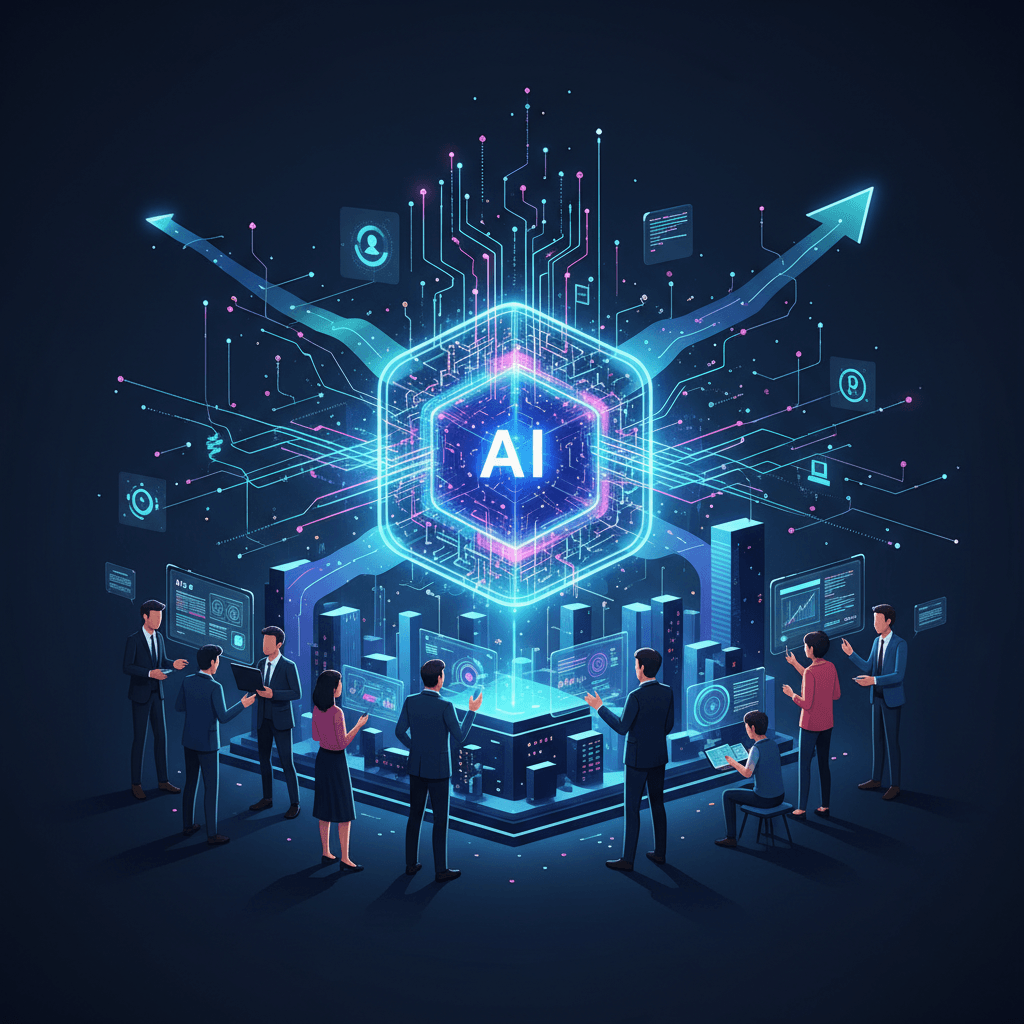Anthropic Launches Inaugural India Dev Event, Intensifies AI Battle for Talent
Anthropic ignites India's AI developer scene with its inaugural event, fueling aggressive market expansion amidst fierce competition.
October 1, 2025

Global AI frontrunner Anthropic is set to host its inaugural developer event in India, signaling a significant strategic move to engage with the nation's burgeoning technology ecosystem. The event, held in partnership with venture capital firm Accel, will take place in Bengaluru, a city widely regarded as India's Silicon Valley. This gathering is designed to bring together a select group of chief technology officers, product leaders, and founders to explore the capabilities of Anthropic's latest model, Claude Sonnet 4.5. The invite-only "AI Dev Day" will feature a roadmap keynote, in-depth technical sessions, and a developer showcase, providing a high-value platform for discussions at the frontier of artificial intelligence.
The decision to launch its first Indian developer event in Bengaluru underscores the city's importance as a hub for AI talent and innovation.[1][2][3][4][5] The event serves as a direct invitation to India's developer community to build new and innovative projects utilizing the Claude Code or the Claude API.[6] To incentivize participation, Anthropic has announced a competition where developers can submit their projects for a chance to win significant Claude credits and the opportunity to present their work live at the event.[6] The focus areas for these projects are enterprise agents and vertical copilots, with a particular emphasis on industries such as fintech, healthcare, logistics, and compliance.[6] This targeted approach suggests a clear strategy to drive the adoption of Claude in commercially significant sectors within the Indian economy.
This developer-focused event is a key component of Anthropic's broader and aggressive expansion into the Indian market. Recent reports indicate that the company is actively seeking to establish a significant presence in the country, a move that includes hiring a country lead.[7][8][9][10][11][12][13][14][15] This expansion is fueled by the remarkable organic adoption of Anthropic's technology in India; the country currently represents 7.2% of global Claude usage, making it the second-largest market for the AI chatbot after the United States.[7][8][9][6][16][13][15] Coding-related tasks are a dominant use case in India, accounting for over half of all Claude activity in the nation, a significantly higher proportion than the global average of one-third.[9][14][15] This data point strongly validates Anthropic's decision to directly engage with India's vast pool of software developers.
The timing of Anthropic's deepened engagement with India is particularly noteworthy, as it comes amidst a period of intensified competition in the global AI landscape. Other major players, including OpenAI, Google, and Microsoft, are also making significant inroads into the Indian market.[7][11][12][16][15] OpenAI, for instance, has announced plans to open an office in New Delhi and has been actively building its team in the country.[7][1][11] This competitive pressure underscores the strategic importance of India as a market for AI products and services. Anthropic's partnership with Accel, a prominent venture capital firm with a strong presence in India, provides a strategic advantage in connecting with the local startup and developer ecosystem. The collaboration is a clear indication of a long-term commitment to fostering a community around Anthropic's technology in India.
In conclusion, Anthropic's first developer event in Bengaluru is more than just a one-off conference; it is a clear statement of intent. By directly engaging with India's vibrant developer community and fostering innovation through its latest AI models, Anthropic is laying the groundwork for a significant and lasting presence in a market that is crucial for the future of artificial intelligence. The event, coupled with the company's broader expansion plans, signals a new phase of competition and collaboration in India's rapidly evolving AI landscape. The focus on practical applications in key enterprise sectors suggests a well-defined strategy to not only capture market share but also to embed its technology within the core of India's digital economy.
Sources
[1]
[2]
[3]
[4]
[5]
[7]
[9]
[12]
[13]
[15]
[16]